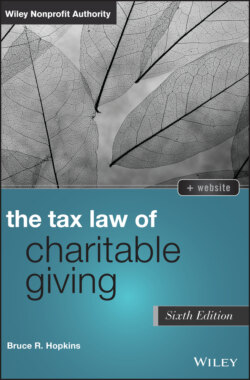Читать книгу The Tax Law of Charitable Giving - Bruce Hopkins R., Bruce R. Hopkins, David Middlebrook - Страница 67
(a) Definition of Ordinary Income Property
ОглавлениеOrdinary income property is property that has appreciated in value, any portion of the gain on which would give rise to ordinary income (or short-term capital gain) if the property had been sold by the donor at its fair market value at the time of the charitable gift. Ordinary income is income that is not long-term capital gain. For these purposes, ordinary income and short-term capital gain are regarded as the same. Thus, ordinary income property is property that, if sold at its fair market value by the donor at the time of its contribution to a charitable organization, would generate a gain that is not long-term capital gain.18
Examples of ordinary income property are:
Property held by the donor primarily for sale to customers in the ordinary course of a trade or business (inventory)19
A capital asset held for a period of time that is less than the period required to cause the property to become long-term capital gain property (short-term capital gain property)
A work of art created by the donor
A manuscript created by the donor
Letters and memoranda prepared by or for the donor
Stock acquired in a nontaxable transaction that, if sold, would generate ordinary income20
Stock in a collapsible corporation that, if sold, would generate ordinary income21
Stock in certain foreign corporations that, if sold, would generate ordinary income22
Property used in a trade or business,23 treated as a capital asset, if gain would have been recognized, upon sale of the property by the donor at its fair market value at the time of the contribution, as ordinary income by reason of the application of recapture rules24
The term ordinary income property does not include an income interest in respect of which a federal income tax charitable contribution deduction is allowed.25
It is the position of the IRS that, when individuals purchase items with the intent of retaining them for the requisite capital gain holding period26 and thereafter donating them to a charitable organization for the purpose of generating a charitable contribution deduction (in an amount greater than the acquisition price), the individuals are engaged in a charitable donation venture.27 The consequence of this view is that the properties held for contribution purposes are items of inventory of the venture and thus are forms of ordinary income property.28 This position, however, is being rejected in the courts.29
